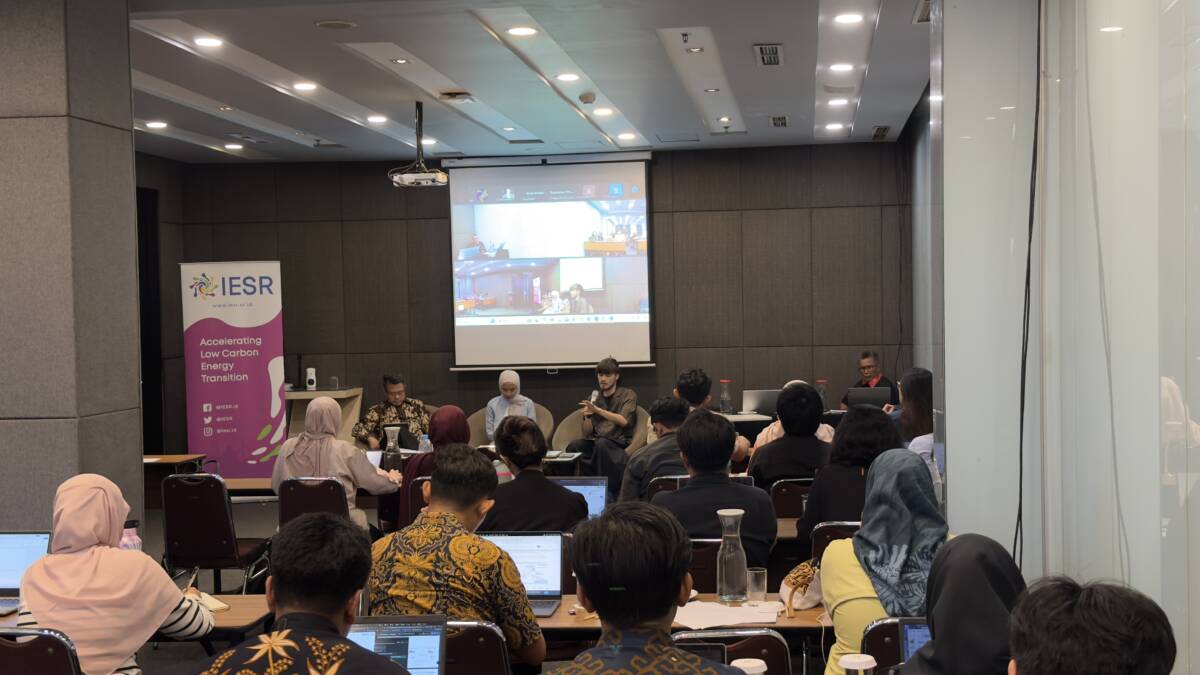Jakarta, November 21, 2024 – Global emission reduction efforts require contributions from each country to reduce its emissions. In emerging economies, the question arises whether the burden to be borne to reduce emissions is the same as that of developed countries (early industrialized countries). Based on historical emissions, countries like Indonesia do not produce emissions as large as countries in the European Union or the United States.
Arief Rosadi, Manager of Climate and Energy Diplomacy, Institute for Essential Services Reform (IESR), said that for Indonesia, to achieve its climate goals, it is necessary to pay attention to development priorities while ensuring that the portion of emissions produced is in accordance with global efforts to limit global warming. He said this in a public discussion on Indonesia’s Climate Responsibility: Examining SNDC Targets and the Path to 1.5 Degrees Celsius Compatibility on Thursday (11/22/2024).
“Indonesia has committed to submitting its second Nationally Determined Contribution (NDC) document for 2031-2035 in 2024, with the aim of aligning it with the 1.5°C scenario in the Paris Agreement. For that, we also need to see which scenario Indonesia should take and what efforts need to be taken to increase Indonesia’s climate ambition commitment,” said Arief.
Agus Sari, CEO of Landscape Indonesia, explained that global contributions refer largely to the carbon budget, the maximum amount of carbon that can be released into the atmosphere. Indonesia’s carbon budget according to the LTS-LCCR (Long Term Strategy Low Carbon Climate Resilience) scenario is 1,400 MtCO2e in 2030 to achieve Net Zero Emissions (NZE) 2060.
“However, there are no globally agreed basic guidelines regarding the distribution of this carbon budget. There is a tendency to divide the existing carbon budget equally,” said Agus.
Agus also said that the energy sector could play a strategic role in reducing Indonesia’s emissions in the future. The use of renewable energy on a large scale and dominating the energy system is a must.
Jamie Wong, Climate Policy Analyst, New Climate Institute, explained that Indonesia’s current climate ambition as stated in the draft of the Second NDC is not ambitious enough, which means that its commitment and ambition can still be improved.
“We must continue to strive for the highest possible ambition while still considering the local capabilities of each country,” he said.

